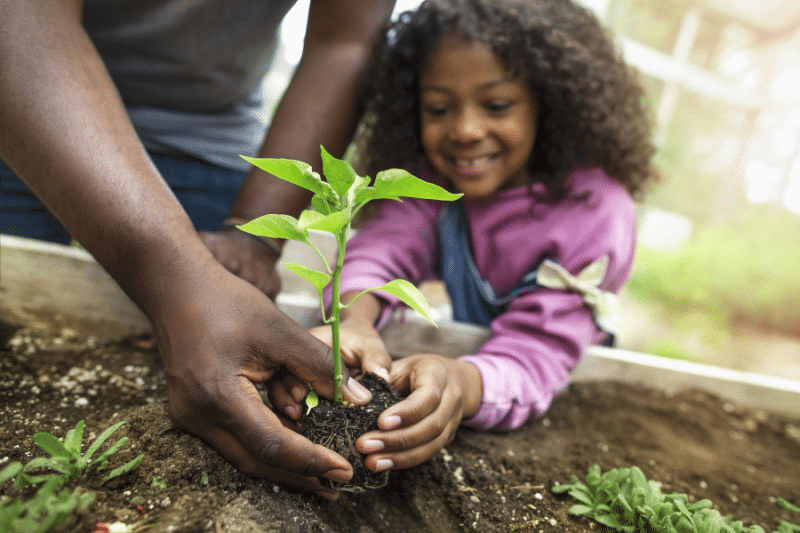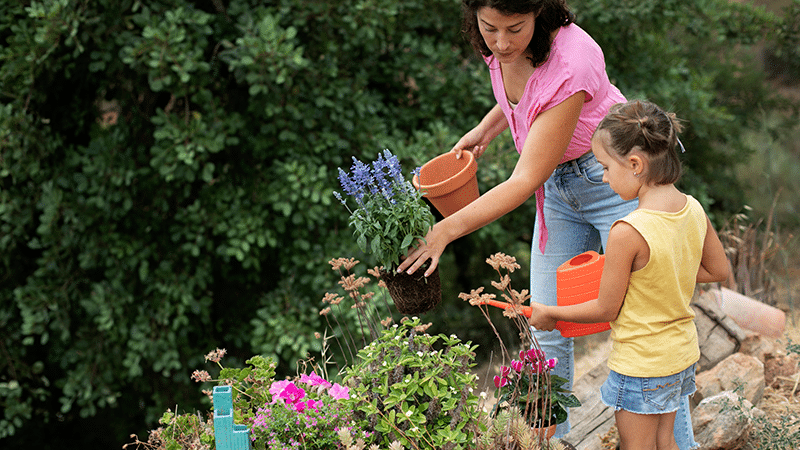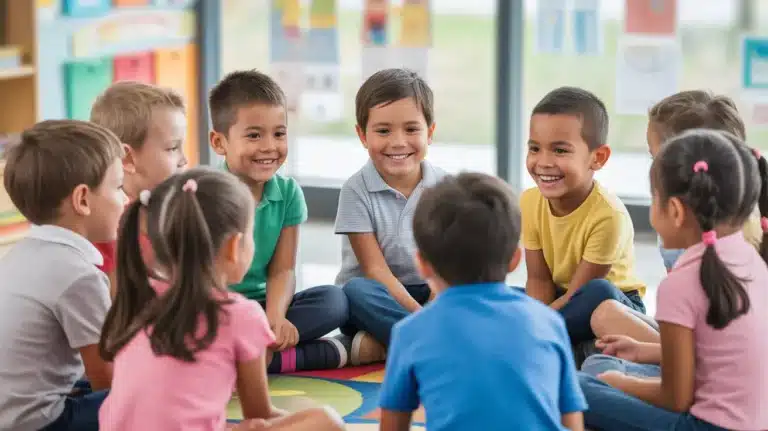Gardening with kids is a great way to enjoy screen-free, outdoor time together. In addition to giving children fresh air and exercise, gardening also teaches them in a fun way about biology, life cycles and nature. It promotes life skills such as patience and perseverance, too. Here’s how to start a children’s garden this summer.
What Kind of Garden Do Your Kids Want?
The most essential tip is to follow your children’s lead. Find out what kind of garden they would like. Do they want to grow their own veggies? Do they want to grow beautiful flowers? Letting your child pick a theme for the new garden area is a great way to engage even reluctant gardeners. The garden could be anything from a color scheme to a purpose or concept. For example:
- A red and pink-themed flower garden.
- A pizza garden with tomatoes, oregano, peppers and onions.
- A fairy garden with miniature flowers, moss and fairy hideaways.
- A butterfly garden to attract colorful insects.
- A name garden, with one plant for each letter in the child’s name.
Once the ideas are set, start small. A few square feet of garden or several containers is plenty for young gardeners. If the space is too large, caring for it will become too much for little ones.
Pick Easy and Fun Plants for Kids
Within the garden theme, if any, set your children up for success by helping them choose easy, resilient plants that require minimal care and give fast results.
For vegetables, sugar snap peas are a great choice. These are an easy, quick win. They are ready to harvest in early spring, and you can eat them straight from the plant. Other easy vegetables for kids include:
- Pumpkins
- Beans
- Radishes
- Cucumbers
In a flower garden, sunflowers always have the wow factor for kids. They are hardy and fast-growing flowers and attract beneficial pollinators, too. Other easy flower choices include:
- Cornflowers
- Poppies
- Marigolds
- Daffodils
- Tulips
Encourage your children to pick some easy plants — but if they really want to grow roses or cauliflower, then say yes, and let them try. Caring for more difficult plants can teach resilience and tenacity.
Starting Your Garden Together
With everything planned and plants or seeds selected, it’s time to get gardening! Get your children involved in an age-appropriate way with every stage of the process. They can help prepare the soil, plant seeds or bulbs, create plant labels, devise watering schedules and keep weeds at bay. Eventually, they can also enjoy harvesting their home-grown food or creating a bouquet of flowers.
Tips for Successful Gardening With Kids

Here are some tips to help make gardening with kids a success:
- Make it a family affair: Involve grandparents too — gardening promotes joint health in older adults, and it’s a lovely way for generations to spend precious time together.
- Supervise the watering: Kids get carried away with water, so teach them not to drown their plants.
- Keep it fun and flexible: Never insist that your children complete gardening chores. You can have that responsibility as an adult, but encourage your kids to join you. For gardening to be a joy, your kids need to want to do it.
- Use journals: Older children may enjoy keeping a record of what they did and when, with drawings or photos.
- Incorporate crafts: Let kids paint rocks or create mini scarecrows or sculptures for the garden too, as another way to personalize their garden space and maintain interest.
- Celebrate harvests: Throw a garden picnic for family and neighbors using home-grown items.
- Be present and involved: Being outdoors with your kids can lower your cortisol levels and ease your stress.
How Children Benefit From Gardening
Children benefit from gardening in many of the same ways that adults do. It’s fun, rewarding and involves physical activity. Caring for and nurturing a plant also promotes mindfulness and kindness. Research suggests that gardening activities can help reduce childhood obesity, too, while common sense tells us that kids who have grown vegetables are more likely to eat them. From nutrition and exercise to mental health and emotional skills, gardening has many benefits for children, and it’s never too early to start.
Gardening With Kids Made Easy
These simple tips will help make your gardening with kids project fun and hassle-free. With little flower and vegetable gardens offering so much potential joy for your children, get started this summer and see what they can grow!
















